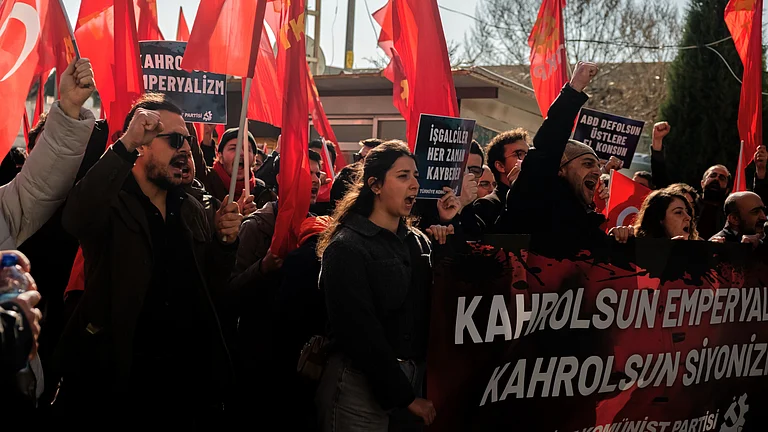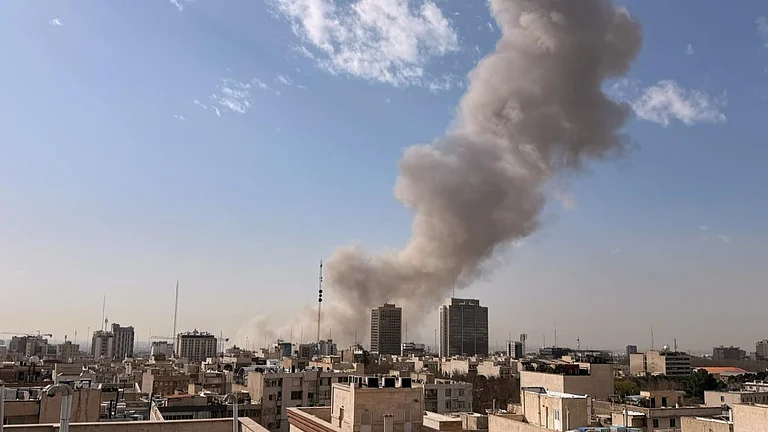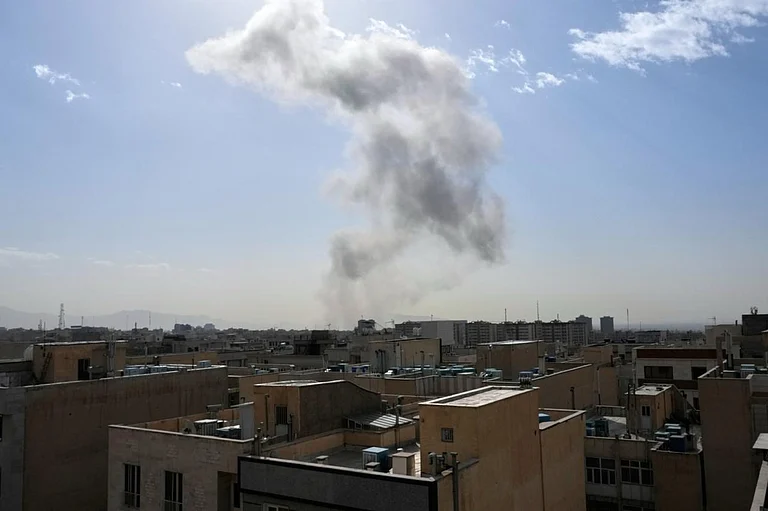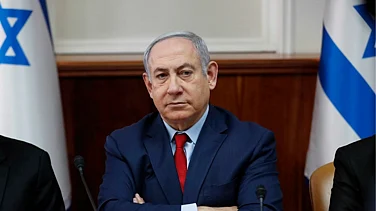Iran on Tuesday vowed to respond to a deadly airstrike widely attributed to Israel that demolished Iran's consulate building in the Syrian capital of Damascus and killed eight people, including two Iranian generals.
The Lebanese militant Hezbollah group — a key ally of both Syrian President Bashar Assad's government and Iran — also pledged "punishment and revenge” on Israel. Israel, which has repeatedly targeted Iranian officers on sites in Syria and in Lebanon, did not confirm the attack.
Iran provides money and weapons to Hezbollah, as well as Hamas and other Palestinian militant groups fighting Israel in Gaza. Clashes between Israel and Hezbollah along the Israeli-Lebanese border have increased since the war in Gaza began nearly six months ago.
Iran's Supreme National Security Council, a key decision-making body, met late on Monday and decided on a “required” response to the strike, Iran's state television reported. It said the meeting was chaired by President Ebrahim Raisi but provided no further details.
“We will make them regretful about the crime and similar acts,” said Supreme Leader Ayatollah Ali Khamenei, who has final say on all matters of state in Iran.
The US National Security Council said the United States played no role in the strike in Damascus and did not know of it ahead of time. Americans directly advised Iran of that, a US official said, speaking on condition of anonymity to discuss the matter.
It was not clear if and when Iran would respond but any retaliation from Tehran would risk a dangerous confrontation with Israel and its ally, the US.
The airstrike killed Gen. Mohammad Reza Zahedi, who led the Iranian Revolutionary Guard's Quds Force in Lebanon and Syria until 2016, his deputy, Gen Mohammad Hadi Hajriahimi, and five other officers. A member of Hezbollah, Hussein Youssef, also was killed in the attack.
Hezbollah announced Youssef's death on Tuesday, but did not provide further details. The group also said Zahedi played a crucial role in helping “develop and advance the work” of the group in Lebanon.
“This crime will certainly not pass without the enemy receiving punishment and revenge,” the Hezbollah statement said.
Syrian Prime Minister Hussein Arnous, after visiting the Iranian Embassy in Damascus, said rescue workers are still searching for bodies under the rubble of the consulate building.
Since the October 7 outbreak of the Gaza war, Iran's proxies have stepped up attacks, with near-daily cross-border exchanges between Hezbollah and Israel, and frequent attacks on Red Sea shipping by Yemen's Iran-backed Houthi rebels.
Israel, which rarely acknowledges strikes against Iranian targets, said it had no comment on the latest attack in Syria, although a military spokesman blamed Iran for a drone attack early Monday against a naval base in southern Israel.
Israel, increasingly impatient with the exchanges with Hezbollah, has warned of the possibility of a full-fledged war. The Houthis have also been launching long-range missiles toward Israel, including on Monday.
Israeli Defense Minister Yoav Gallant said the country is in a war on multiple fronts “both offensively and defensively.”
“We see evidence of this every day, including over the last few days,” said Gallant, speaking to the Israeli parliament's Defense and Foreign Affairs Committee. "We operate everywhere, every day, in order to prevent our enemies from gaining strength and in order to make it clear to anyone who acts against us — all over the Middle East — that the price for action against Israel will be a heavy one.”
UN Secretary-General António Guterres condemned the strike on the Iranian Consulate and reaffirmed on Tuesday “the principle of the inviolability of diplomatic and consular premises," according to his spokesman Stephane Dujarric. Guterres also said diplomatic personnel "must be respected in all cases in accordance with international law.”
The UN Security Council scheduled an emergency meeting on Tuesday at Tehran's request.
Gulf monarchies Saudi Arabia, the United Arab Emirates and Qatar condemned the strike as fears grow of a widening regional conflict. The 22-state Arab League slammed Israel, saying it aims to “expand the war and push the region to chaos.”
Iran's official news agency IRNA said Iran relayed an important message to the US late Monday, delivered through a Swiss envoy in Tehran. Switzerland looks after US interests in Iran as Washington and Tehran have no diplomatic relations.
IRNA also said Iran holds the US, Israel's closest ally, responsible for the strike. Meanwhile, a US defense official said that an attack drone was detected and destroyed by US forces at Al-Tanf Garrison in Syria on Monday afternoon.
No injuries and no damage to infrastructure were reported. The official spoke on the condition of anonymity to discuss details not yet made public. The drone was in the vicinity of the base, but it was not clear whether it was targeting the base, the official said.
And in the Red Sea, the US Central Command said early Tuesday that its forces destroyed a Houthi unmanned surface vessel the previous day. CENTCOM said the vessel posed “a threat to US and coalition forces and merchant vessels in the region.”






















